Last week was another busy week with budget action, a key cutoff, and long hours for legislators, staff, and lobbyists. Wednesday, April 2nd was the last day for bills to be passed out of their opposite house policy committees. With many bills dying due to the challenging fiscal climate, a lot of policy committee meetings were cancelled in the final days leading up to policy cutoff.
Following policy cutoff, attention quickly shifted to fiscal committees. There is a quick turnaround of less than a week between opposite house policy cutoff and opposite house fiscal cutoff on Tuesday, April 8th. All bills that had been referred to a fiscal committee in their opposite house must pass out of committee by Tuesday or they are considered dead (unless they are deemed Necessary to Implement the Budget (NTIB). Both the House Appropriations and Senate Ways & Means committees convened on Saturday for long meetings of hearings in the Senate, and hearings and executive session in the House.
Bills that do make it out of fiscal committee in time will be referred to the Rules committee for further consideration. After that our next cutoff date is Wednesday, April 16th when bills must be passed out of the opposite house.
Upcoming Key Dates:
- April 8th – Opposite House Fiscal Cutoff
- April 16th – Opposite House Floor Cutoff
- April 27th – Sine Die
For those that like to keep track of the number of bills moving through the legislative process, below are the number of bills introduced, and the bills passed by each of the cutoffs we have crossed:
- Bills Introduced so far in the 2025 session: 1,918
- Bills Passed House of Origin Policy Cutoff: 1,154
- Bills Passed House of Origin Fiscal Cutoff: 730
- Bills Passed House of Origin Floor Cutoff: 523
- Bills Passed Opposite House Policy Cutoff: 485
Budgets
There’s been a lot of activity around the budgets over the past week including committee hearings, executive sessions, and floor votes. It is important to note that both chambers’ proposals end up hanging on the same bill number. This is a procedural move that can be somewhat confusing. For example, both the Senate and House operating budget proposals are hung on the Senate budget bill – SB 5167. This is because the Senate passed their proposed budget off the floor first, and then the House’s proposed budget is essentially a proposed substitute that got hung onto the same bill. Then the House’s version of the bill goes back to the Senate and the Senate ‘refuses to concur’ on the House’s proposal and the bill is sent to a conference committee (aka budget negotiations). The final budget will ultimately be put forward as a ‘conference report’ that both chambers vote on without further amendment. More on that in the coming weeks.
Rather than wading through this confusing procedure of versions on the bill page, it’s easier to look for all the budget documents under the pages for the respective budget proposals on fiscal.wa.gov.
Operating Budgets
The Senate passed their operating budget off the Senate floor on March 29th with a vote of 28 to 21. The House passed theirs off the House floor on March 31st with a vote of 54 to 44. The operating budget leads will now go into negotiations as they work towards producing a final operating budget.
House Operating Budget Documents
Senate Operating Budget Documents
Transportation Budgets
The Senate passed their transportation budget off the Senate floor on March 29th with a vote of 34 to 15. The House passed theirs off the House floor on April 2nd with a vote of 66 to 30. The transportation budget leads will now go into negotiations as they work towards producing a final transportation budget.
House Transportation Budget Documents
Senate Transportation Budget Documents
Capital Budgets
The House and Senate capital budgets were both be released on Monday, March 31st. Both were heard in their respective committees (House Capital Budget and Senate Ways & Means). The Senate passed their capital budget out of Senate Ways & Means on April 3rd and the House passed theirs out of the House Capital Budget committee on April 4th. The Senate passed their capital budget off the Senate floor on April 5th and the House is expected to vote on theirs sometime in the following days.
House Capital Budget Documents
Senate Capital Budget Documents
Revenue
Last Monday, the Senate Ways and Means Committee held a marathon public hearing on their proposed revenue package. Then the House Finance Committee held hearings on their revenue package on Thursday, April 3rd. Thousands of Washingtonians registered their positions on the eight revenue bills introduced between the two chambers and hundreds of people testified. As of this writing, these bills have not been scheduled for executive session, but they are very clearly considered ‘necessary to implement the budget’, so are not subject to the cutoff calendar.
The morning after the Senate public hearing, Governor Ferguson held a press conference to share his perspective about the Senate and House progress on the operating budget to date. The Washington State Standard has a great recap of the press conference.
Key takeaways from Governor Ferguson’s press conference:
- Governor Ferguson remains opposed to the inclusion of the “wealth tax” (aka “Financial Intangible Tax”) in the final budget as a way to close the budget gap. The House biennial budget assumes this tax would raise $2.4 billion and the Senate biennial budget assumes it would raise $4.2 billion. The primary reason for the Governor’s opposition to this tax is because he believes it is untested and would not withstand a legal challenge.
- Governor Ferguson argues both budgets are too reliant on new taxes and additional spending reductions are needed. In short, he said he would not sign either budget in their current form.
Governor Ferguson cited five components necessary for his approval of a final budget:
- Protection of the Rainy Day Fund.
- Basing the budget on realistic revenue projections.
- Minimizing new investments.
- Identifying additional new savings and efficiencies.
- Not relying on a new revenue source with a high likelihood of being overturned by the courts (e.g. the wealth tax).
Governor Ferguson said he continues to be in discussion and negotiations with legislative leaders and did remain open to other revenue sources, but did not identify which options he supports.
Upcoming Events Report
Finance (House) – HHR A and Virtual JLOB – 4/7 @ 10:00am
- HB 2038 – Public Hearing – Establishing the youth behavioral health account and funding the account through the imposition of a business and occupation additional tax on the operation of social media platforms. (Remote Testimony Available).
Appropriations (House) – HHR A and Virtual JLOB – 4/7 @ 1:30pm
- SSB 5040 – Exec Session – Expanding the definition of uniformed personnel to all law enforcement officers employed by a city, town, county, or governing body of a municipal airport operating under the provisions of chapter 14.08 RCW.
- ESSB 5041 – Exec Session – Concerning unemployment insurance benefits for striking or lockout workers.
- E2SSB 5148 – Exec Session – Ensuring compliance with the housing element requirements of the growth management act.
- ESSB 5576 – Exec Session – Providing a local government option for the funding of essential affordable housing programs.
- E2SSB 5613 – Exec Session – Concerning the development of clear and objective standards, conditions, and procedures for residential development.
Ways & Means (Senate) – SHR 4 and Virtual JACB – 4/7 @ 1:30pm
- EHB 1217 – Exec Session – Improving housing stability for tenants subject to the residential landlord-tenant act and the manufactured/mobile home landlord-tenant act by limiting rent and fee increases, requiring notice of rent and fee increases, limiting fees and deposits, establishing a landlord resource center and associated services, authorizing tenant lease termination, creating parity between lease types, and providing for attorney general enforcement.
- 2SHB 1409 – Exec Session – Concerning the clean fuels program.
- SHB 1811 – Exec Session – Enhancing crisis response services through co-response integration and support.
- HB 1858 – Exec Session – Eliminating the exemption for assignments or substitutions of previously recorded deeds of trust from the document recording fee and the covenant homeownership program assessment.
- 3SHB 1491 – Exec Session – Promoting transit-oriented housing development.
- 2SHB 1183 – Exec Session – Concerning building code and development regulation reform.
Appropriations (House) – HHR A and Virtual JLOB – 4/8 @ 1:30pm
- SB 5036 – Exec Session – Strengthening Washington’s leadership and accountability on climate policy by transitioning to annual reporting of statewide emissions data.
Transportation (House) – HHR B and Virtual JLOB – 4/8 @ 1:30pm
- SSB 5374 – Exec Session – Including tribal representation in certain transportation activities.
- SB 5702 – Exec Session – Streamlining the toll rate setting process at the transportation commission.
- SSB 5773 – Exec Session – Concerning alternative procurement and delivery models for transportation projects.
Ways & Means (Senate) – SHR 4 and Virtual JACB – 4/8 @ 1:30pm
- E2SHB 1213 – Exec Session – Expanding protections for workers in the state paid family and medical leave program.
- ESHB 1622 – Exec Session – Allowing bargaining over matters related to the use of artificial intelligence.
- ESHB 2015 – Exec Session – Improving public safety funding by providing resources to local governments and state and local criminal justice agencies, and authorizing a local option tax.
- 2SHB 1975 – Exec Session – Amending the climate commitment act by adjusting auction price containment mechanisms and ceiling prices, addressing the department of ecology’s authority to amend rules to facilitate linkage with other jurisdictions, and providing for market dynamic analysis.
- SSB 5786 – Exec Session – Increasing license, permit, and endorsement fees.
- SB 5804 – Exec Session – Concerning fish habitat restoration.












